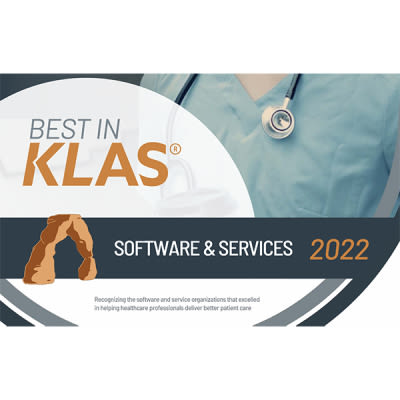The U.S. Center for Connected Medicine (CCM) conducted an expert survey in March 2020 on the adoption of precision medicine programmes in health systems and application of genomic data management strategies.
You might also like:Health Informatics – ‘Lost Tribe’ No More
The survey (Center for Connected Medicine 2020) was supported by HIMSS Media, Nokia and UPMC. 101 top-level respondents participated representing various fields, such as IT, clinical and informatics, and dealing with genomics for care provision at U.S. healthcare institutions and systems.
The major findings of the survey are as follows:
- There is increased implementation of precision medicine and genomic data management strategies.
- Such strategies are being or planned to be rolled out on an enterprise level.
- At the forefront of strategy setting are informatics personnel and clinicians.
- When choosing an enterprise platform, the top criteria are the ability to facilitate re-interpretation of genomic data and support clinician notification.
- The majority of respondents expect the number of vendors their institutions collaborate with to increase in the nearest future.
- Key to genetic/genomic testing and precision medicine programmes expansion are clinical and cost effectiveness and reimbursement.
Specifically, almost nine out of ten respondents either currently provide genetic/genomic testing or plan to do so in the next 24 months. The most common precision medicine programmes include immunotherapy (73% provide the testing, 19% plan to) and pharmacogenomics (55% and 36% respectively). Complex programmes, such as next generation sequencing and cell therapy, are much more common at academic medical centres.
A third of respondents indicated that there was a genomic data management strategy in place and another two thirds planned it to be implemented in the next two years. Also, in 67% of cases the strategy is enterprise-wide.
Among those who are most often (over 50%) involved in setting the strategy are informaticians (including clinical and genomic) with 87%, clinicians who use genomics in their work with 84%, as well as IT/technology and business (administration, finance, etc.) personnel with 70% and 60%, respectively.
Re-interpretation of genomic data and clinician notification are the most valuable platform features (extremely of very valuable for 91% of the respondents), together with the ability to consume test results from various labs (87%) and integration with multiple electronic health records (77%).
For genetic/genomic data, healthcare institutions and systems have on average 2.1-2.3 vendor partners in areas such as production of information, data storage and analysis. Almost 60% of the respondents expect the number of partners increase in the nearest future.
The main drivers for the launch/development of genetic/genomic testing are clinical and cost effectiveness (54% and 45%, respectively) as well as reimbursement (42%), technology infrastructure (33%) and clinical practice guidelines (32%).
Industry research and practical examples from other healthcare institutions are the main sources of information on genomic data management for executives (74% and 68%, respectively). Over a half search for information through conferences and peer associations.
Image credit: Natali_Mis via iStock
References:
Center for Connected Medicine (2020) Genomic Data in Health Systems. Available from https://connectedmed.com/resources/report-genomic-data-management-is-vital-to-precision-medicine-efforts-at-health-systems/



















